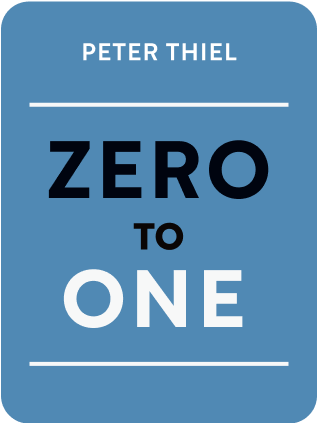

This article is an excerpt from the Shortform summary of "Zero To One" by Peter Thiel. Shortform has the world's best summaries of books you should be reading.
Like this article? Sign up for a free trial here .
Are you building a startup team? Do you know who to hire to make your startup successful?
Building a startup team is a careful process. You’ll need to consider the various roles in your company, and the kind of people you’re looking for. This guide can help with building a startup team that works.
Building a Cohesive Team
We often think of coworkers as people we need to get along with at work, but don’t have to like or befriend outside of work. This is considered being professional—but it’s not the way to run an extraordinary startup. Building a startup team is important for your company’s success.
But how do you learn how to build a startup team? When you’ve discovered a new niche market, you need to move quickly to dominate it and distance your company from potential competition. To move fast with maximum productivity, you need a tight-knit and extremely dedicated team—people with more than just a transactional relationship with each other.
Many tech companies think the way to attract recruits and build a committed culture is by offering perks, such as free laundry pick-up, yoga and massages, an on-site chef, pet daycare, and so on. But perks have no value unless they’re backed with substance. Further, culture is something a company is, not something it has. A company is a group of people pursuing a mission; its culture is how they do that. Building a startup team affects your whole company.
Step 1: Beyond Professionalism
The first team that Thiel built became known as the “PayPal Mafia” because so many early employees established lasting relationships and went on to help each other start great new companies. Among them were seven new companies worth more than a billion dollars each: LinkedIn, Yelp, Yammer, YouTube, Palantir, Tesla, and SpaceX.
Instead of focusing on office amenities, Thiel focused on hiring compatible employees and fostering a strong sense of community and commitment to a goal everyone was excited about. PayPal’s culture, in effect, spread into new companies.
Instead of the professional view of a workplace where employees check in and out, simply exchanging hours for a paycheck, work relationships should extend beyond work and also be long-lasting. In fact, if the considerable time you spend at work doesn’t build longer-lasting relationships, you haven’t used it well. Knowing how to build a new startup team is essential.
Stronger relationships result in better work and help people build successful careers beyond PayPal. Building a startup team also means building a future.
Step 2: Recruiting
The first few employees in a startup might be attracted by exciting roles or equity. But beyond your first round of hires, you must be able to articulate to the 20th candidate why he should want to join your company.
Since talented people have many options, you need to take the above question even a step further: why should they choose your company over others that might offer more pay and prestige? Building a tech startup requires attracting these people.
Most companies would say things like: we offer an opportunity to work with smart people, solve challenging problems, and receive stock options. However, to stand out, your answers need to be specific to your company. They should address two things: your company’s mission and your team
1) Your mission: Explain what makes your mission unique and compelling—what’s the important thing you’re doing that no one else is doing? PayPal’s mission of creating a new digital currency to replace the dollar was unique and inspired job applicants and employees.
2) Your team: Show potential employees that the people on your team are the kind of people they want to work with. Show each recruit how your company is a unique match for him.
But don’t cite your perks—you don’t want people working for you who can be convinced to do so by things like laundry pickup because that’s an indication of superficiality. Your unique mission is what should count.
Step 3: Building a Startup Team Identity
Building a tech startup is about more than your product. Startups, which are in survival mode, should make everyone on their initial team as similar as possible to enable the team to work together efficiently from the start.
Outwardly, that means providing a “uniform,” which in Silicon Valley is a branded T-shirt or hoodie that makes each employee look like his coworkers. This uniform identifies each as part of a team committed to your company’s mission. It reflects a key startup principle: every employee in your company is “different in the same way.”
Besides having a common “look,” your employees should have some common interests and a common understanding of the world. The initial PayPal team members were “the same kind of nerd.” They had certain shared interests, such as science fiction and Star Wars, and they all were “obsessed” with creating a digital currency controlled by people instead of governments. Thiel believed that for the company to succeed, every new hire had to be equally obsessed.
One Thing
At work, most conflicts stem from people competing for the same responsibilities. While creating a team of like-minded people, Thiel avoided this kind of competition by making each person in the company responsible for doing one specific thing—each person’s one thing was unique. Further, each employee knew he would be evaluated only on that responsibility.
In the early stages of a typical startup, responsibilities are often fluid, which creates a risk of conflict that a startup can’t afford. Infighting weakens a company by hindering productivity and focus, making it vulnerable to outside competition. Building a tech startup means considering all angles.
Thiel’s “one thing” approach mitigated the risk and also made it easier for people to build the close relationships that would support the company’s success, since they weren’t competing.
Step 4: A Startup Is a Cult—and That’s OK
Most people have a negative impression of cults, partly because they look crazy and some of the highest-profile cults in U.S. history were homicidal (Jim Jones, Charles Manson). But a culture of extreme dedication can be an asset to a startup. Knowing how to build a startup team can mean you go for this type of culture.
In the most intensely committed organizations, members associate only with other members and ignore their families and the outside world. In return, they get a strong feeling of belonging and of being privy to some kind of secret. At the other extreme is the detached, “professional” attitude found in many consulting firms. These firms lack a unique mission and their employees drop in and out of client companies with no sense of commitment or connection.
Every company’s culture falls somewhere between these extremes. The best startups are “slightly less extreme cults.” The difference between a startup and an unhealthy cult is that the latter is usually zealously wrong about something. People in a committed startup culture are zealously right about a secret that outsiders have missed. If your company doesn’t make sense to conventional professionals, it’s often a sign of strength.
Building a startup team means more than getting talented people together. Instead, building a startup is a careful process that requires a robust hiring plan.

———End of Preview———
Like what you just read? Read the rest of the world's best summary of Peter Thiel's "Zero To One" at Shortform .
Here's what you'll find in our full Zero To One summary :
- Why some companies genuinely move the world forward when most don't
- How to build a company that becomes a monopoly (and why monopolies aren't bad)
- Silicon Valley secrets to selling products and building rockstar teams






